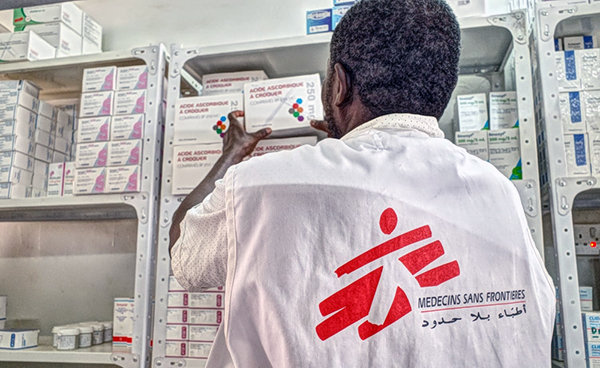
Doctors Without Borders: We Obtained Some Work Permits
moatinoon
Doctors Without Borders announced that it has obtained a limited number of travel permits for its employees to access areas controlled by the Rapid Support Forces.
In a statement issued today, Thursday, the organization explained that it has not granted any travel permits to Khartoum since October 1st. It urged the Sudanese authorities not to reimpose these restrictions to avoid further loss of lives.
The organization stated, "For the first time in over 90 days, a limited number of travel permits have been granted to humanitarian workers to access areas controlled by the Rapid Support Forces. Previously, no travel permits have been granted to travel to Khartoum since October 1st."
Guy Fatto, the head of the mission of Doctors Without Borders in Sudan, said that the organizations teams face severe challenges to keep services open, largely due to the administrative restrictions imposed on staff travel permits.
Fatto explained, "While our teams continue to deal with the overwhelming flow of victims, the restrictions imposed on the movement of essential medical staff and other humanitarian workers to Khartoum for several months have prevented people from obtaining life-saving treatment for injuries and preventable diseases."
He added, "The demand for health services in Khartoum has increased since the violent events that swept through the state of Jazeera in mid-December. This led to the closure of many health facilities in Wad Medani, the capital of the state, and the return of many people to Khartoum. Although Doctors Without Borders has just been granted permission to return to Wad Medani, which is a positive development, this was the first time in over 90 days, and we urge the Sudanese authorities to facilitate our regular access to the Jazeera and Khartoum states so that we can meet our ongoing needs - the increasing needs of the population."
Regarding the situation in Khartoum, Guy Fatto, the head of the mission of Doctors Without Borders in Sudan, said, "Despite the previous mass displacement from Khartoum due to the ongoing fighting, there is still a large number of people who either cannot afford the cost of fleeing or have been unable to do so due to vulnerabilities or lack of security and are now struggling to get essential treatment." He pointed out that three million people have become isolated from healthcare.
Currently, only a few hospitals are operating, including the Turkish hospital managed by teams from Doctors Without Borders, receiving over 100 patients daily, most of whom are children and pregnant women. Many of them arrive in critical condition, having risked traveling to the hospital, sometimes walking miles on foot and across the frontlines, due to the lack of ambulance services and very few available transportation options.
In the Um Dawa Ban Hospital, there is no oxytocin hormone, which is essential for many women during labor. One staff member describes the painful scenes inside the pediatric unit, where children with chronic diseases like diabetes cannot find insulin and often arrive hours away from death when they finally reach the hospital.
At Beshair Teaching Hospital, south of Khartoum, Suleiman Amar, the medical coordinator for Doctors Without Borders, says, "The team here has conducted over 6,100 consultations in the emergency department over the past six months. As one of the few functioning hospitals available to the community in the state of Khartoum, it is a lifeline for many, but we are beginning to miss the basics."

